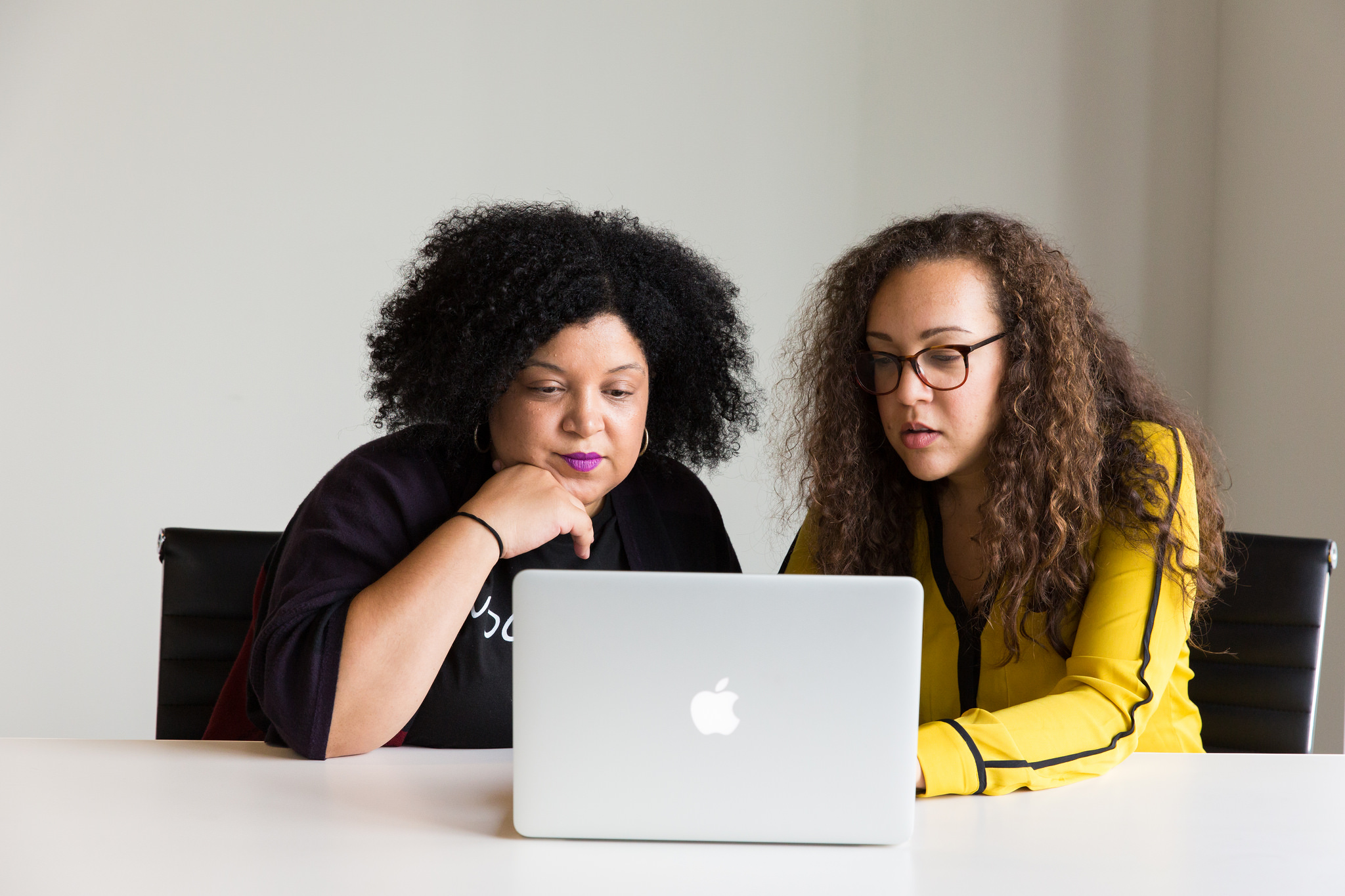
Impact the Gap: Experts Discuss Gender Wage Equality
I wish I could tell you the modern workplace is a meritocracy. That regardless of identity, your experience will grant you the same opportunities to earn and progress as anyone else in your position. Sadly, this isn’t true. Slice it any way you like–by gender, race, ethnicity, or a myriad of other means of identification–and the fact is that wage inequality persists. At the same time, an equitable workplace is far from a pipe dream. Many companies have published their employee and salary data and are holding themselves accountable to achieving parity. Others seek to educate the underrepresented to know their worth and advocate on their own behalf. At Hired, we want to highlight these individuals and share what they’ve learned, what they’ve seen work, and how others can follow their lead. To begin, we invited a few experts to share their data, strategies, and ideas for narrowing the wage gap at an inspiring panel discussion and networking event.
The panel discussion was jam packed with eye-opening material, and I’ve pulled out some highlights for your convenience. Truthfully, though, this topic is best articulated by the experts themselves, which is why you can stream the entirety of the panel discussion after the jump. But first, let’s meet the panel.
Lydia Frank, VP of Content Strategy, Payscale
Lydia leads a team of content creators and researchers at PayScale.com, a compensation data and software company, who work to understand all of the various factors that impact compensation. She has contributed content around salary negotiation, gender equity and compensation best practices to various publications, (Harvard Business Review, Money, Fortune) and is regularly cited in the media as a compensation and negotiation subject matter expert.
Rebekah Bastian, VP of Community & Culture, Zillow Group.
At Zillow Group, Rebekah leads efforts around Equity & Belonging, Social Impact Products, and Cultural Engagement. She writes for multiple publications and is a frequent speaker at conferences and community events. She has been recognized in the Puget Sound Business Journal 40 Under 40, the Inman 33 People Changing the Real Estate Industry, and the Female Founders Alliance Champion Awards.
Sage Ke’alohilani Quiamno, Pay Equity Advocate, Female Founders Alliance, formerly Ladies Get Paid
Sage is a passionate women’s rights advocate, equal pay champion and community builder. She’s formerly Head of Hustle at Ladies Get Paid, where she provided women the tools and resources they needed to advocate for themselves at work. She recently accepted a role leading marketing for Female Founders Alliance, whose mission to close the VC funding gap for female entrepreneurs. Sage taps into her deeply rooted Hawaiian culture to create authentic, supportive communities in Seattle for social justice initiatives. She has produced and moderated multiple events surrounding pay equity and gender equality across the US, and teaches monthly salary negotiation classes at General Assembly. She has spoken on panels for the Seattle Women’s March, the American Advertising Federation, University of Washington at the Foster School of Business, and Starbucks for Women’s History Month.
Why is the wage gap not closing?
Lydia Frank: There’s a couple ways to look at the wage gap. First, the controlled wage gap: equal pay for equal work. That gap is much smaller than previously thought, our research shows it’s about .98 cents on the dollar compared to men. However, as women progress in their career, it increases. At the executive level, it’s .94 cents on the dollar. It gets worse over time, even as women presumably get better at negotiating. There’s unconscious bias at work here, women get certain pushback in negotiation that men do not. A recent study from Harvard and Carnegie Mellon looking at what happens when men and women initiate negotiations suggests women pay a social capital that men do not, for example, when they initiate, hiring managers report being less likely to want to work with that woman.
The other side of the wage gap is the big number we hear, .78 cents on the dollar, and that looks at all women working compared to all men working. And that number tells us is that women are under represented in the best paying jobs. The way to close that large number is get more women into leadership. Women are 5% of CEOs in the S&P 500, even though representation of women at the individual contributor level is very even.
How do you ensure equal pay at the beginning of the candidate journey?
Rebekah Bastian: First, we don’t ask for salary history. This ensures that if someone is underpaid, their expectations aren’t limiting them when it comes to negotiation. When it comes to making sure the gap doesn’t increase with seniority, we measure whether different groups are moving up at the same rate. We train our leaders on how to tell when someone is ready for growth or a lateral move, even if that individual isn’t the loudest about asking for it.
How do you coach candidates to know their worth and ask for it?
Sage: First off, we create awareness. We need to arm all women with the specifics on the wage gap, so we’ll present data like how 60% of college graduates are women, but only 22% make it past middle management. In 2017 the Census Bureau told us that 59% of women in the US make less than $30,000 a year. So after I shock the women in the classroom, we then talk about shifting their mindset about money. It can be a taboo topic, but the truth is a job is an exchange of goods and you need to be compensated as such. We then educate on market worth. So we use tools like Payscale and Glassdoor to triangulate salary expectations. We also foster communities such as our Ladies Get Paid slack channel which connects women with others all over the country to talk about what they’re making and what they should expect. Other elements we cover include practicing your pitch about why you are the best candidate and why you deserve a certain salary, and even practicing being interrupted and not being thrown off course because let’s be honest ladies, that happens alot.
Related blog posts

How To Beat Burnout For Managers: 3 Habits For Stress Relief
Are you feeling overwhelmed as a manager? Studies show that managers face a higher risk of burnout...

9 Game-Changing Project Management Tools for Scaling Your Team’s Results
The ever-changing workplace of today brings with it ever-evolving workplace rituals —...

How Cars.com Is Driving the Future of Tech Recruiting
Mike Dwyer is a man of many talents. HR leader, improv comedian, and entrepreneur, Mike is known...

What Do Millennials Want at Work? 7 Things They Want & 3 Employer Dealbreakers
As a key part of today’s workforce, Millennials have been the source of many work memes,...

5 Interview Questions Hiring Managers Need to Ask Before Making An Offer
Job interview questions can be time consuming fact-finding missions that don’t always yield...

The Key to Hiring Top Software Engineers Isn’t More Money
With demand for technical workers soaring, and an expected job growth rate of 17% by 2024, hiring...

